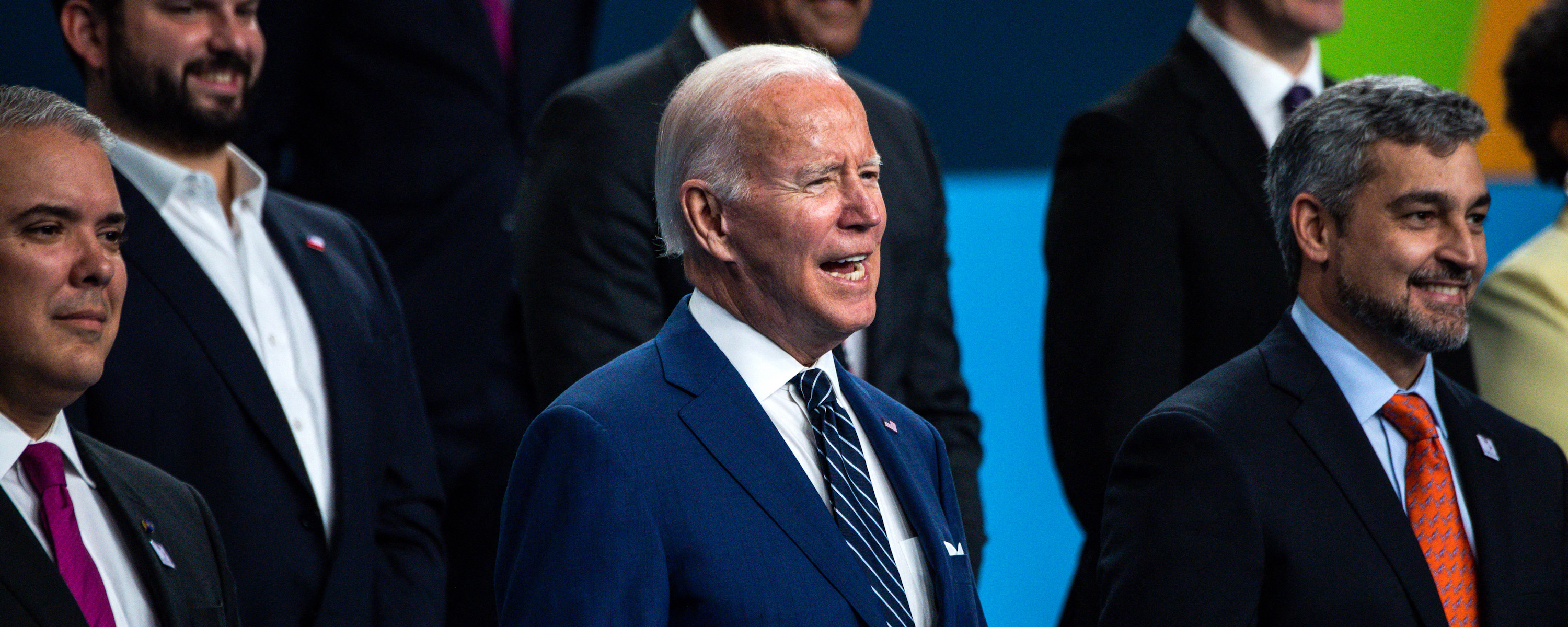While U.S. policymakers scratch their heads about Central America, the U.S. Senate is set to vote any day now on four ambassadors to the region.
For now the only consensus seems to be Nicaragua. The Senate has placed the suspension of the country from the Central American Free Trade Agreement, CAFTA, at the top of the menu as hundreds of sanctions against regime figureheads and institutions haven’t quelled a billowing assault on civil society, the opposition, and even the Catholic church.
In his late July Senate hearing, nominee Hugo Rodríguez, deputy assistant secretary of State for Western Hemisphere Affairs from 2019 to 2021, promised Florida Republican Marco Rubio that he would use “all economic and diplomatic tools” with the Ortega regime and “seriously consider” CAFTA as a “pressure” point.
Not that it’s the ambassador's call, but there’s reason to doubt the threat.
“More than half of U.S. imports under CAFTA are textiles coming from the free trade zone, mostly operated by American firms or outsourced by them,” Manuel Orozco, director of the migration and remittances program at the Inter-American Dialogue, told El Faro English. “The concern is that any CAFTA-related measure will hurt U.S. business.”
In his hearing Rodríguez also called for the “immediate release of all political prisoners.” Head of state Daniel Ortega responded hours later by pulling his endorsement, calling the remarks “interventionist and disrespectful.”
The State Department first said it would “reevaluate” the pick but has refused to budge, citing obligations to challenge threats to democracy in the Inter-American Democratic Charter. Should the Senate confirm Rodríguez, they may force Ortega’s hand on whether to let the new ambassador into Nicaragua.
He would replace Ambassador Kevin Sullivan, confirmed in 2018. Rodríguez, a career foreign service officer whose father fled the Dominican military dictatorship of Rafael Trujillo in 1952, has outdone his predecessor, drawing accusations of imperialism before setting foot in the country.
Pragmatism with Bukele
The Foreign Relations Committee finally sent Rodríguez and El Salvador candidate William Duncan’s nominations to the Senate for a vote on August 3. The U.S. hopes Duncan will resurrect a line of communication and influence with President Nayib Bukele amid intense conflict over his consolidation of absolute power and the non-extradition of MS-13 leaders.
His confirmation would stop the carousel of five temporary chiefs of mission in El Salvador since Biden’s inauguration —the most turnover at the top post that the Embassy has ever seen— amid Republican obstruction of regional nominees and evident perplexion in the White House over U.S. policy in the country.
On her way out in November, interim Ambassador Jean Manes said, “Why would I stay if we don’t have a partner here?” Bukele has accused the U.S. of sewing rifts in his party and financing anti-government protests.
“We don’t have to clap or celebrate all the stuff that we don’t think is good, but we have a national security interest that needs to be balanced,” Rubio told Duncan at the nomination hearing — a sign of Republicans’ ongoing hesitancy toward El Salvador, and perhaps something to show for Bukele’s multimillion-dollar Washington lobbying efforts.
That semi-conciliatory tone contrasts with the House, where, as we revealed last week, the bipartisan Tom Lantos Human Rights Commission will convene on Monday at noon ET for a hearing on human rights abuses in El Salvador under the state of exception. It’s no coincidence that all of the speakers in the second panel of the hearing, prominent civil society representatives and a journalist, have strongly criticized the measures.
Duncan worked from 1995 to 1997 in the political affairs and consular offices of the Embassy in El Salvador, and from 1998 to 2000 as the State Department’s head for El Salvador affairs in Washington, D.C. He has also worked in the Bureau of Central American Affairs. At his first post in the northern Mexican city Matamoros, he worked and became friends with Ricardo Zúñiga, Biden’s special envoy to the Northern Triangle.
A State Department source told El Faro English that Duncan has “the trust of the seventh floor,” a nod to his closeness and speed-dial to the top officials in the hemisphere.
Olympic challenges
Salvadoran journalist Héctor Silva, one of those scheduled to testify at the Monday House hearing, asserts that there are two rivaling visions in the White House and Congress of how to approach northern Central America: on one hand, reconciliation, to stave off Chinese and Russian influence; and on the other, confrontation, under the idea that, if left unchecked, El Salvador and Guatemala could head down the path of Nicaragua.
“They’re wondering how to use the tools at their disposal, but they haven't found answers or clarity,” he told El Faro English.
Another ex-ambassador to El Salvador, Mari Carmen Aponte, former acting assistant secretary of State for Western Hemisphere Affairs, was picked to lead the mission in Panama amid the largest protests in decades over the rising cost of living, inequality, and corruption. In her Senate hearing she stressed cooperation in the decadeslong U.S. drug war and “managing migration.”
It’s striking, given that the key issue for the Senate is Chinese influence and trade in the Panama Canal, seen by many as a hub for U.S.-China competition, that she had to wait eight months for a nomination hearing and is nearing one year without confirmation.
Lastly, Biden has nominated for Belize Michelle Kwan, the public diplomacy envoy under the Bush and Obama administrations and daughter of Hong Kong immigrants. In her statements to the Senate in May she said she would focus on drug interdiction efforts and on relations with Taiwan — a game of all-or-nothing with Beijing.
It goes without saying that Kwan, the record-holding former Olympic skater, is unlikely to find an ice rink in Belmopan.

